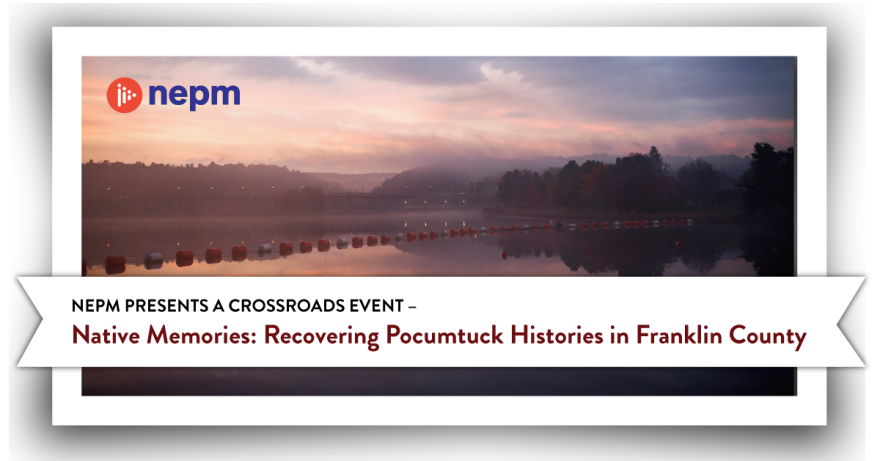NEPM Presents a Crossroads Event:
Native Memories: Recovering Pocumtuck Histories in Franklin County
A talk with Dr. Margaret M. Bruchac
Saturday, March 4 at 4 p.m.
Shea Theater Arts Center, Turners Falls
Native American memories and histories in the valley of the Kwinitekw (Connecticut River) are long and deep, tracing back to glacial times and marked by many, many generations. Native communities in the territories called Nonotuck (now Northampton and Hadley), and Pocumtuck (now Deerfield and Greenfield) were supported by reciprocal trade and diplomacy with their Native neighbors, including Abenaki to the north and Nipmuc to the east, among others.
During the mid-1600s, the English colonists who came here survived by relying on Native ecological knowledges — maize horticulture, maple sugaring, seasonal fish runs, — that became part of regional Yankee culture. Native leaders negotiated written documents that, they hoped, would preserve rights to hunt, fish, gather, plant, and live here in perpetuity. Yet, the increase in colonial settlement and colonial warfare forced the Native communities along the Kwinitekw to relocate. Even so, some Native families continued to travel familiar paths and waterways, setting up camps, marketing baskets and brooms, and dispensing Native medicines. During the 1800s, local historians across New England promoted the romantic stereotype of the “vanishing Indian,” despite the evidence of Native persistence.
Native histories in Franklin County can be better understood by critically analyzing colonial documents, revisiting Indigenous landscapes, and otherwise dismantling myths and stereotypes that push Native people, then and now, into the vanished past.
Dr. Margaret M. Bruchac (Nulhegan Abenaki), is an associate professor of anthropology at the University of Pennsylvania. In her multi-modal career as a performer, ethnographer, historian, and museum consultant, Bruchac has long been committed to critical analyses of colonial histories and recoveries of Indigenous histories. She also directs “The Wampum Trail,” a restorative research project designed to reconnect wampum belts in museum collections with their related Indigenous communities. She has long served as a consultant to New England museums, including Historic Northampton, Historic Deerfield, the Pocumtuck Valley Memorial Association, and Old Sturbridge Village. Her 2018 book, "Savage Kin: Indigenous Informants and American Anthropologists" won the inaugural Council for Museum Anthropology Book Award.
“Crossroads: Change in Rural America” will be on view at the Great Falls Discovery Center in Turners Falls through March 18, 2023. The exhibition is part of Museum on Main Street, a collaboration between the Smithsonian Institution and Mass Humanities. Support for Museum on Main Street has been provided by the United States Congress.
“Crossroads: Change in Rural America” is a collaboration between the Department of Conservation and Recreation, RiverCulture, the Friends of the Discovery Center, the Pocumtuck Valley Memorial Association, Montague Public Libraries, and New England Public Media.


